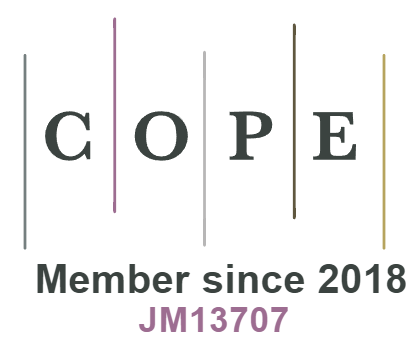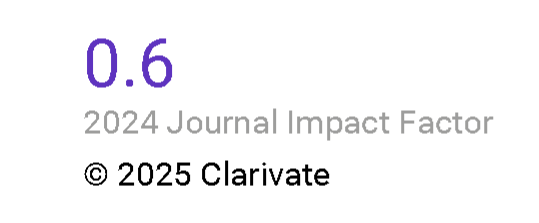Some Weak Variants of the Existence and Disjunction Properties in Intermediate Predicate Logics
DOI:
https://doi.org/10.18778/0138-0680.46.1.2.08Keywords:
intermediate predicate logics, existence property, disjunction propertyAbstract
We discuss relationships among the existence property, the disjunction property, and their weak variants in the setting of intermediate predicate logics. We deal with the weak and sentential existence properties, and the Z-normality, which is a weak variant of the disjunction property. These weak variants were presented in the author’s previous paper [16]. In the present paper, the Kripke sheaf semantics is used.
References
[1] A. Church, Introduction toMathematical Logic I, Princeton University Press, Princeton (1956).
Google Scholar
[2] L. M. Doorman, A note on the existence property for intuitionistic logic with function symbols, Zeitschrift für Mathematische Logik und Grundlagen der Mathematik 36 (1990), pp. 17–21.
Google Scholar
[3] D. M. Gabbay, V. B. Shehtman and D. P. Skvortsov, Quantification in nonclassical logic. Vol. 1, Studies in Logic and the Foundations of Mathematics, 153. Elsevier, Amsterdam (2009).
Google Scholar
[4] H. Ishihara and T. Nemoto, A note on the independence of premiss rule, Mathematical Logic Quarterly, to appear.
Google Scholar
[5] S. C. Kleene, Introduction to metamathematics, D. Van Nostrand Co., Inc., New York 1952.
Google Scholar
[6] S. C. Kleene, Disjunction and existence under implication in elementary intuitionistic formalisms, Journal of Symbolic Logic 27 (1962), pp. 11–18. (An addendum, the same journal 28 (1963), pp. 154–156.)
Google Scholar
[7] Y. Komori, Some results on the super-intuitionistic predicate logics, Reports on Mathematical Logic 15 (1983), pp. 13–31.
Google Scholar
[8] P. Minari, Disjunction and existence properties in intermediate predicate logics, Atti del Congresso Logica e Filosofia della Scienza, oggi. San Gimignano, 7–11 dicembre 1983. Vol. I – Logica. (1986), CLUEB, Bologna (Italy).
Google Scholar
[9] T. Nakamura, Disjunction property for some intermediate predicate logics, Reports on Mathematical Logic 15 (1983), pp. 33–39.
Google Scholar
[10] H. Ono, A study of intermediate predicate logics, Publications of the Research Institute for Mathematical Sciences 8 (1972/73), pp. 61–649.
Google Scholar
[11] H. Ono, Some problems in intermediate predicate logics, Reports onMathematical Logic 21 (1987), pp. 55–67. (Supplement 22 (1988), pp. 117–118.)
Google Scholar
[12] D. Prawitz, Natural deduction. A proof-theoretical study, Acta Universitatis Stockholmiensis. Stockholm Studies in Philosophy, No. 3 Almqvist & Wiksell, Stockholm 1965. (Reprint: Dover Publications, 2006)
Google Scholar
[13] N.-Y. Suzuki, A remark on the delta operation and the Kripke sheaf semantics in super-intuitionistic predicate logics, Bulletin of the Section of Logic, University of Łódź, 25 (1996), pp. 21–28.
Google Scholar
[14] N.-Y. Suzuki, Algebraic Kripke sheaf semantics for non-classical predicate logics Studia Logica 63 (1999), pp. 387–416.
Google Scholar
[15] N.-Y. Suzuki, Halldén-completeness in super-intuitionistic predicate logics, Studia Logica 73 (2003), pp. 113–130
Google Scholar
[16] N.-Y. Suzuki, A negative solution to Ono’s problem P52: Existence and disjunction properties in intermediate predicate Logics, to appear.
Google Scholar
[17] A. S. Troelstra and D. van Dalen, Constructivism in mathematics, Vol. I. An introduction, Studies in Logic and the Foundations of Mathematics, 121. North-Holland, Amsterdam, 1988.
Google Scholar
[18] T. Umezawa, “Chūkan jutsugo ronri” (Intermediate predicate logics) (in Japanese), Gekkan Masematikusu, Vol. 1, No. 2 (1980), pp. 162–168. Kaiyo Shuppan Co., Ltd.
Google Scholar
Downloads
Published
How to Cite
Issue
Section
License
Copyright (c) 2017 © Copyright by Authors, Łódź 2017; © Copyright for this edition by Uniwersytet Łódzki, Łódź 2017

This work is licensed under a Creative Commons Attribution-NonCommercial-NoDerivatives 4.0 International License.















